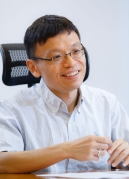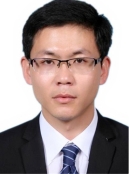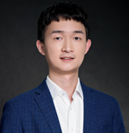
Assoc. Prof. LEE John Sie Yuen
City University of Hong Kong
Prof. John S. Y. Lee is an Associate Professor at the Department of Linguistics and Translation at City University of Hong Kong. He received his BMath from the University of Waterloo in 2002, and his PhD in Computer Science from the Massachusetts Institute of Technology (MIT) in 2009. Prof. Lee's research focus is on natural language processing (NLP) and computational linguistics, especially their applications in language learning and in education. His recent projects have focused on automatic readability assessment; reading material recommendation; question and exercise generation for language learning; and the use of Large Language Models in teaching and learning.
Speech title: "Student
Use of Accurate and Inaccurate Chatbot Content: An Empirical Study
Abstract: With the
integration of generative artificial intelligence into education,
high-quality materials generated by Large Language Models (LLMs)
have been shown to bring pedagogical benefits. Although it is well
known that these models can hallucinate, there has been relatively
less empirical research on the impact of misinformation on
students’ learning outcome. This paper investigates the extent to
which university students can engage critically with LLMs;
specifically, whether they can both benefit from the accurate
content and recognize the false content. In our study, 144
students were asked to answer short questions in a test. Each
question required students to compare or distinguish between two
concepts, scores or corpus queries (say, A and B). The correct
answer may be “A only”, “B only”, “both”, or “neither”. For some
of the questions, the answer generated by a
chatbot was also shown. In questions
where the chatbot was correct, the treatment group outperformed
the control group, who had no access to the chatbot answer. In
questions where the chatbot was incorrect, student performance
varied according to the content of the chatbot answer. When the
correct answer was “both” but the chatbot suggested only one of
the two options, the treatment group was more likely than the
control group to also recognize the validity of the other option.
When the chatbot also explained (falsely) why the other option was
incorrect, the treatment group was more prone to agree with the
chatbot.

Assoc. Prof. Wei Liu
Shanghai Jiao Tong University
Wei Liu received the B.S.
degree from Xi'an Jiaotong University, Xi'an, China, in 2012. He
received the Ph.D. degree from Shanghai Jiao Tong University,
Shanghai, China in 2019. He was a research fellow in The
University of Adelaide and The University of Hong Kong from 2018
to 2021 and 2021 to 2022, respectively. He has been working as an
associate professor in Shanghai Jiao Tong University since 2022.
His current research areas include image filtering, 3D detection,
3D reconstruction and self-supervised depth estimation. He has
published many top-tier papers in TPAMI, ToG, IJCV, TIP, ICCV,
AAAI, etc.
Speech title: "
Abstract: In this talk, I will report our recent work on deep learning based 3D reconstruction and understanding. For 3D reconstruction, I will present our continuous learning framework for 3D reconstruction of dynamic scenes, where our method shows promising performance in reconstruction quality, inference speed and scalability. For 3D scene understanding, I will introduce our recent work on 3D detection, we propose a multi-stage cross-modal fusion 3D object detection framework with IoU joint prediction. Our method achieves superior performance over state-of-the-art approaches on KITTI and nuScene datasets.

Dr. Peng Zhang
Huazhong University of Science and Technology
Peng Zhang received the B.S. degree in biomedical engineering and the Ph.D. degree in control science and engineering from Huazhong University of Science and Technology, Wuhan, China, in 2011 and 2018, respectively. He joined Wuhan National Laboratory for Optoelectronics, Huazhong University of Science and Technology, as a post-doctoral fellow in 2018. His research areas include intracortical brain-machine interface, biomedical signal analysis, and deep learning. He has published 25 SCI papers in high-level journals such as Med, Nature Chemistry, and IEEE Trans. He also authored a chapter in the book "Neural Interface: Frontiers and Applications" and applied for 16 patents (8 granted and one patent transformation with 1.27 million).
Speech title: “Automatic Detection and Risk Prediction of Atrial Fibrillation”
Abstract: Atrial fibrillation is the most common arrhythmia in the general population, and can lead to dangerous complications. Effective automatic detection and risk prediction of atrial fibrillation are crucial for its prevention and treatment. This presentation will first introduce the research on atrial fibrillation detection, which involves developing a deep learning-based AI algorithm to accurately and automatically detect atrial fibrillation episodes from clinical 24-hour Holter ECG data. Subsequently, the presentation will present the research on atrial fibrillation risk prediction, where a deep learning-based AI algorithm is developed to effectively predict individual atrial fibrillation risks using only heartbeat information during sinus rhythm. Both studies have undergone comprehensive performance evaluations on large-scale real-world clinical datasets. Additionally, the presentation will explore how clinicians can utilize these AI tools to enhance their atrial fibrillation detection and risk prediction capabilities in real clinical practice.

Tomoko Tateyama
Fujita Health University
She received her M.E. degree in 2003
and D.E. degree in 2009, both from the Graduate School of
Engineering and Science, University of the Ryukyus, Okinawa, Japan.
She was a research member and assistant professor at College of
Information and Science, Ritsumeikan University from 2009 to 2016.
Then she was an Assistant Professor at Hiroshima Institute of
Technology, Japan from 2016 to 2020, followed by an Associate
Professor position at the Center for Data Science Education and
Research, Shiga University from 2020 to 2021. She is currently an
Associate Professor in the School of Medical Sciences, Fujita Health
University. Her research interests include Data Science-driven
Medical Image Analysis, Machine Learning, development of clinical
support interaction systems and their applications. She is a member
of IEICE, Japanese Society of Medical Imaging Technology, IEEE
Engineering in Medicine and Biology Society (EMBC), ACM, and other
professional societies.
Speech title: “Integration of Data Science and Artificial Intelligence for Advanced Clinical Support Systems”
Abstract: The integration of Data Science into healthcare presents the challenge of effectively analyzing and utilizing huge amounts of medical data generated daily. This study addresses this problem by developing Data Science-driven clinical support systems. Through mathematical and statistical methodologies, our research group has created systems that integrate Data Science and Artificial Intelligence (AI) to analyze complex datasets including electronic medical records, diagnostic imaging, vital signs, and genetic information. The invited talk will present several research case studies that show various applications of these methodologies in clinical settings. These examples demonstrate how our Data Science-based systems contribute to enhanced healthcare delivery through effective data interpretation. Our studies show that approaches combining Data Science and AI can transform complex medical data into clinically meaningful knowledge, strengthening the medical-engineering collaboration essential for advancing modern healthcare

Dr. Yvonne Leung
Northeastern University, USA & University of Toronto, Canada
Dr. Yvonne Leung is a multifaceted researcher and educator with extensive experience in psychosocial oncology, mental health, and healthcare analytics. She currently holds positions as an Assistant Teaching Professor in the Analytics program at Northeastern University, a Scientist at the University Health Network (UHN), and an Adjunct Lecturer at the Department of Psychiatry, University of Toronto. With a Ph.D. in Kinesiology and Health Science from York University, specializing in Health Psychology, Dr. Leung has over 15 years of experience in psychosocial and mental health research. She has secured more than C$1.3 million in research funding and awards, publishing 49 peer-reviewed journal articles and presenting at over 70 conferences. Dr. Leung's research focuses on innovative applications of artificial intelligence in healthcare. She leads projects using deep learning-based natural language processing algorithms to develop chatbot solutions for automated self-care support, particularly for cancer patients. Her work aims to improve quality of life and access to care for patients, especially those with metastatic breast cancer. At Northeastern University, Dr. Leung teaches courses in the Analytics program, bringing her expertise in advanced statistical techniques. She also conduct workshops on building agents and Retrieval Augmented Generation Chatbots with open-source large and small language models.
Speech title: “Artificial Intelligence Based Patient Librarian”
Abstract: Few online interventions meet the psychosocial and supportive care needs of Metastatic Breast Cancer (MBC) patients with HR+/ HER2- subtypes. The current report describes the development and evaluation of the Artificial Intelligence Patient Librarian (AIPL), an interactive chatbot to deliver patient education and navigation by leveraging curated resources at the Princess Margaret Cancer Center. AIPL offered conversational patient education about the disease, invited users to ask questions on topics of interest, and provided tailored online resource recommendations. A mixed-method study assessed the impact of AIPL on patient ability to manage the advanced disease. The study consisted of 3 Phases: 1. Educational content transformed to be delivered by the chatbot, annotating over 100 credible online resources to drive recommendations using a Convolution Neural Network (CNN). 2. Beta-testing of the chatbot with 42 participants who completed a pre-survey, used AIPL for two weeks, and then completed a post-survey, both measuring patient activation. Patient activation measure (PAM) assessed their skill, knowledge, and confidence in managing their health. Post-survey also assessed user experience of the AIPL using the System Usability Scale (SUS). 3. Focus groups exploring user experiences. Of 42 (70%) consenting participants, 36 (85.7%) completed the study, and 10 (23.8%) participated in focus groups. The majority of the participants were aged 40-64 years. No significant differences were observed in PAM scores between pre-survey (mean=59.33 , SD=5.19) and post-survey (mean=59.22, SD=6.16). SUS scores indicated good usability. Thematic analysis identified four themes describing the extent to which technology impacted their management of metastatic breast cancer: 1. AIPL offers basic guidance on wellness and health, 2. AIPL provides limited support for managing relationships, 3. AIPL offers limited medical information unique to their conditions, and 4. AIPL is unable to offer hope to patients. Although AIPL showed no impact on PAM, possibly due to high baseline activation, it demonstrated good usability and addressed basic information needs, especially for newly diagnosed MBC patients. Future work will incorporate a large language model (LLM) in the AIPL to ensure that patients receive more comprehensive and personalized assistance.

Asst. Prof. Peng Liu
Singapore Management University
Peng Liu has a Ph.D. in Statistics and Data Science and a M.S. in Business Analytics from the National University of Singapore. Currently he is an Assistant Professor of Quantitative Finance (Practice) at the Lee Kong Chian School of Business, Singapore Management University. He is also an adjunct research fellow at the Institute of Operations Research and Analytics at National University of Singapore. He has over ten years of industry experience across multiple industries. His research highlights expertise in areas such as deep learning, sparse estimation, and Bayesian optimization with applications in Finance.
Speech title: "Improving
Foreign Exchange Trading Strategies using Bayesian Optimization
Abstract: Bayesian optimization is a cost effective global optimization framework widely used in tasks such as hyperparameter tuning. We show that the Bayesian optimization framework can be used to create cointegrated currency portfolio in the foreign exchange market. A salient feature of the Bayesian approach is the ability to perform online updating of the cointegrated portfolio weights as new data become available. We compare the robustness of the portfolio performance with the convention cointegration approach through the use of standard econometric tools like the Johansen test. We also demonstrate its practical application using the net effective exchange rate in Singapore as a case study.